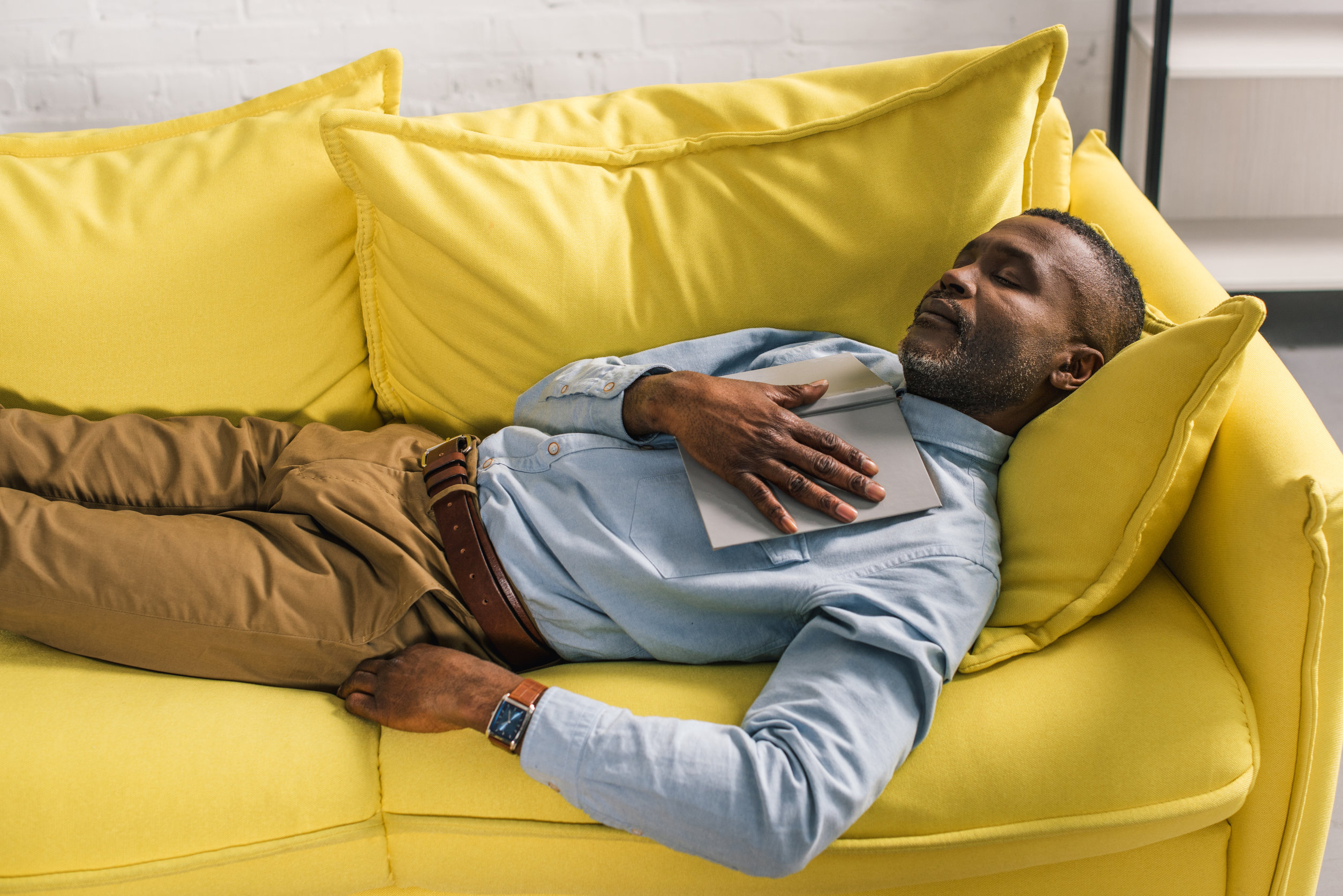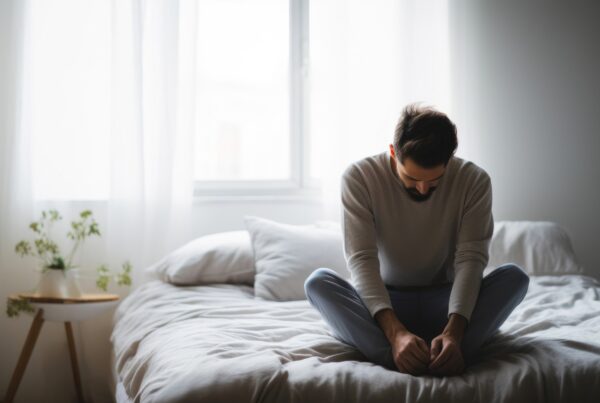”Question: What can I do to plan some recovery strategies and improve my sleep this coming holiday?
Reading Time: 5 Minutes
MWi Hack:
- Learn how to mitigate the negative effects on your sleep that often come along with the holiday season.
MWi Summary:
- You can try these strategies to help improve your sleep during the holiday season, and all year around:
- Go to bed when you’re sleepy.
- Ease yourself into a new time zone to prevent jet lag.
- Pay attention to snoring. Snoring may be associated with sleep apnea.
- Get morning sunlight.
- Reduce alcohol consumption.
- Follow up with a sleep specialist if sleeping problems persist.
The holiday season is usually one of the busiest – and often most stressful – times of the year. It’s also a season that often brings poor sleep. To improve your health and your mood, consider six simple ways that you can maintain healthy sleep during the hustle and bustle of the holidays and even discover the resolve to improve your sleep.
1. Go to bed when you’re sleepy.
It seems obvious, but it isn’t always easy to do: sleep most easily comes when we are feeling sleepy. Insomnia, characterized by difficulty falling or staying asleep, can plague us throughout the year. With the added stress of the holidays, it can be even harder to fall asleep.
Many insomniacs will start to go to bed earlier, or stay in bed long after waking, to make up for lost sleep. This desperation often thins out sleep and makes it less refreshing. Imagine showing up for a holiday feast after having snacked all day. You wouldn’t have much of an appetite. If you spend too much time in bed or take naps, you similarly will show up for the eight-hour feast of sleep without much interest.
Prolonged wakefulness helps to build our drive for sleep and staying up a little later until you feel sleepy can ease insomnia. Preserving 30 to 60 minutes to relax before bed can also aid this transition.
2. Ease yourself into a new time zone to prevent jet lag.
If you’re flying across the world, or even across the country, you may find that your sleep suffers. This is due to our body’s natural circadian rhythm, which regulates the timing or our desire for sleep. This rhythm is based on genetics, but it is strongly influenced by environmental cues, especially morning sunlight exposure.
If you suddenly change your experience of the timing of light and darkness by hopping on a jet plane, your body will have to play catch up. As a general rule: “West is best and east is a beast.” This points out that westward travel is more tolerated because it’s nearly always easier to stay up later than it is to wake up earlier.
Another rule of thumb is that it takes one day to adjust for each time zone change. If you travel across three time zones, from San Francisco to New York City, it will take about three days to adjust to the new time zone. This adaptation can be expedited by adopting the new time zone’s bedtime and wake time before you depart. If you’re like most people, your best intentions might not lead to pre-trip changes.
Never fear: To catch up once you arrive, delay your bedtime until you are sleepy, fix your wake time with an alarm, and get 15 minutes of morning sunlight upon awakening.
3. Put an end to the snoring.
Whether you’re staying in grandma’s spare room or sharing a hotel suite, close quarters during the holidays may call attention to previously unnoted snoring and other sleep-disordered breathing like sleep apnea.
Remember that children should never chronically snore; if they do, they should be seen by a sleep specialist. Adults don’t have to snore either. Snoring is commonly caused by the vibration of the soft tissues of the throat. If the airway completely collapses in sleep, this is called sleep apnea. This may lead to fragmented sleep with nocturnal awakenings and daytime sleepiness. It is also commonly associated with teeth grinding and getting up to urinate at night.
When sleep apnea is moderate to severe, it may increase the risk of other health problems including hypertension, diabetes, heart attack, stroke, and dementia. It’s more than a nuisance, and if you or a loved one experiences it, further evaluation and treatment are warranted.
4. Get morning sunlight.
Morning sunlight is a powerful force that affects our sleep timing and can improve daytime alertness. Light is perceived by our eyes and passes via the optic nerve near the hypothalamus, the part of the brain that controls sleep, appetite, and other functions.
Ideally, your eyes would be exposed to natural sunlight within 15 minutes of waking for a period of 15 to 30 minutes. This means going outside without sunglasses or a hat. Unfortunately, many northern latitudes may not have sunlight until later in the morning during the winter months, and you will have to wait until sunrise even if it is long after your awakening.
This lack of sunlight may provoke symptoms that are sometimes called winter depression or Seasonal Affective Disorder (SAD). Morning light influences the circadian timing of sleep, making it easier for us to fall asleep and wake earlier. It’s part of our natural experience that has been lost with modern conveniences (like a darkened bedroom). Rediscover it by waking and going outside to have your coffee, go for a walk, or to read your newspaper. It is
surprising how wonderful such a simple intervention can make you feel.
5. Reduce alcohol consumption.
Alcohol can have insidious effects on the quality of our sleep. Recent studies support the notion that alcohol can make us feel sleepy, enhancing the impacts of adenosine, the neurotransmitter in the brain that contributes strongly to sleepiness. Adenosine levels are low after sleep and gradually build with wakefulness, contributing to our sleep drive.
Therefore, a few cocktails at the holiday party may make you feel sleepy and encourage a long winter’s nap. However, alcohol quickly wears off. As it is metabolized, the levels fall within the blood, and this can lead to fragmentation of sleep and awakenings. Moreover, alcohol itself is a muscle relaxant and this can relax the airway’s muscles and contribute to snoring and sleep apnea. These breathing disturbances may further fragment sleep. Therefore, it’s best to try to reduce the intake of alcohol in several hours before bedtime to aid your sleep.
6. If problems persist, schedule an appointment to see a doctor.
If, despite your best efforts, your sleep continues to be suboptimal, make an appointment to see a board-certified sleep specialist. Sleep disorders – ranging from insomnia, snoring, sleep apnea, restless legs syndrome, narcolepsy, sleep behaviors, and more – are extremely common.
Fortunately, many effective treatments exist that will leave you sleeping and feeling better. If needed, resolve to get the help you need to sleep well this holiday season.
MWi would like to thank Brandon R. Peters, M.D., for the expert insights that we were able to share with our community. To read the original article go to:






